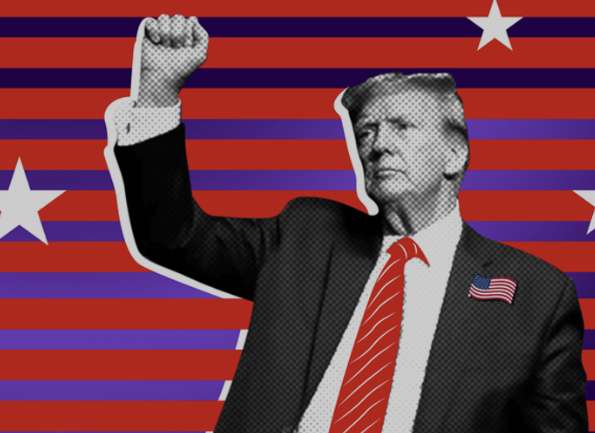Trump And Von der Leyen's Recent 'Good Call' Postponed EU Tariffs- For Now
Just days after abruptly announcing a 50% tariff on the EU set to take effect on June 1, Trump again showcased his nature of "change". On Sunday, the president declared that he agreed to postpone the

Just days after abruptly announcing a 50% tariff on the EU set to take effect on June 1, Trump again showcased his nature of "change". On Sunday, the president declared that he agreed to postpone the 50% tariff deadline to July 9, 2025.
"I received a call today from Ursula von der Leyen, President of the European Commission, requesting an extension on the June 1st deadline on the 50% Tariff with respect to Trade and the European Union," Trump posted on his social media. "I agreed to the extension - July 9, 2025 - It was my privilege to do so."
Meanwhile, von der Leyen also emphasized that she had a "good call" with Trump, stating that "Europe is ready to advance talks swiftly and decisively. " However, reaching "a good deal" would require extending the deadline to July 9, which is originally the end of Trump's previously announced 90-day "reciprocal tariff" grace period.
"The EU and US share the world's most consequential and close trade relationship," von der Leyen wrote.
The EU has struggled to understand Trump's demands in trade negotiations. Officials had proposed reducing tariffs on many goods to zero, but Trump has consistently focused on what he calls "non-tariff trade barriers." For instance, the U.S. president has repeatedly accused the EU of deliberately stalling negotiations and unfairly targeting American companies through litigation and regulation. Last Friday, he bluntly stated that the 27-nation bloc was "very difficult to deal with."
Trump's aides appear to share the same view. U.S. Treasury Secretary Bessent, in an interview last Friday, stressed that the EU needs to take its trade relationship with the U.S. more seriously. "I've said before, [the] EU has a collective action problem here. It's 27 countries, but they're being represented by this one group in Brussels. So some of the feedback that I've been getting is that the underlying countries don't even know what the EU is negotiating on their behalf," Bessent said in the interview.
Deputy Treasury Secretary Michael Faulkender, in a separate interview, noted that U.S.-EU trade negotiations face a "dual challenge": negotiating tariffs with the EU as a whole while addressing most non-tariff barriers through separate talks with individual European countries, creating a "negotiation problem."
According to sources familiar with the matter, the EU submitted a revised trade proposal to the U.S. last week in an effort to advance negotiations. The framework covers tariffs and non-tariff barriers, as well as economic security, two-way investment, strategic procurement, and cooperation on global challenges.
However, it's worth noting that, compared to issues like "non-tariff barriers," "economic security," or "global cooperation," the U.S. president's primary goal is to incentivize global companies to produce goods in the U.S. rather than overseas. In last Friday's interview, Bessent stated: "The president is trying to bring back precision manufacturing to the U.S., and I think that one of our greatest vulnerabilities is this external production, especially in semiconductors."
However, Trump later clarified that he wants global companies to produce "big things", like AI, chips, and computers in the U.S., not "low-end stuffs." "We're not looking to make sneakers and T-shirts, and we want to make military equipment," Trump said on Sunday.
Meanwhile, Europe is indeed home to numerous high-tech companies spanning semiconductors, industrial automation, automotive manufacturing, aerospace, artificial intelligence, and more. Firms like Bosch, sap, Airbus, arm, and asml are currently leaders in their respective industries.
Notably, during a press conference in Morristown, New Jersey, on Sunday, Trump said von der Leyen had pledged to "rapidly get together and see if we can work something out." He also emphasized: "I told anybody that would listen, they have to do that."
According to economic research estimates, Trump's 50% tariff threat could impact $321 billion in U.S.-EU trade, reduce U.S. GDP by nearly 0.6%, and push prices up by over 0.3%. Yet the president insisted he has no plans to reach a deal with the EU before June 1.
"I just said, it's time that we play the game the way I know how to play the game," Trump remarked.
Disclaimer: The views in this article are from the original Creator and do not represent the views or position of Hawk Insight. The content of the article is for reference, communication and learning only, and does not constitute investment advice. If it involves copyright issues, please contact us for deletion.